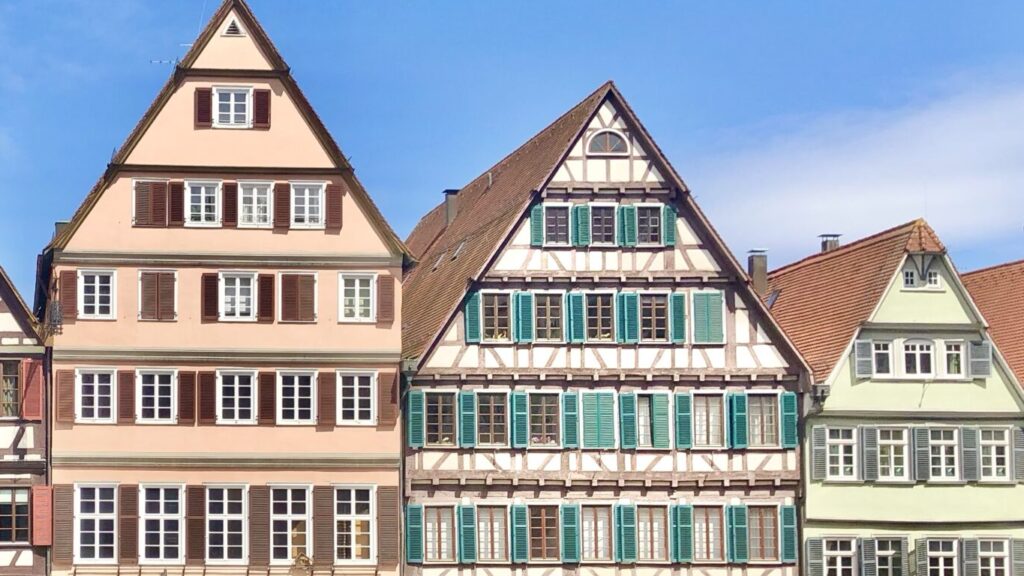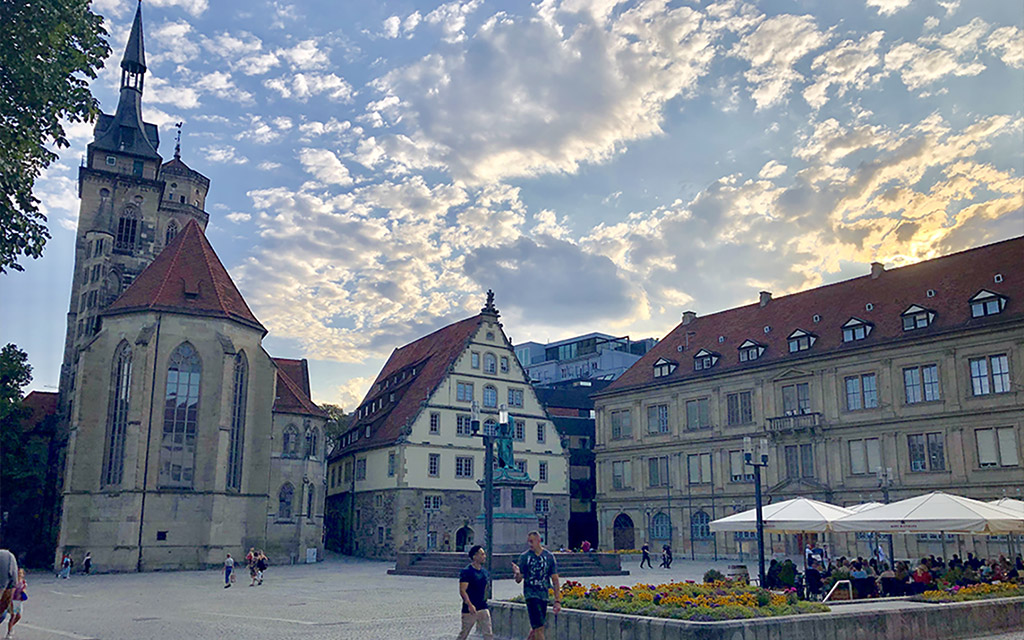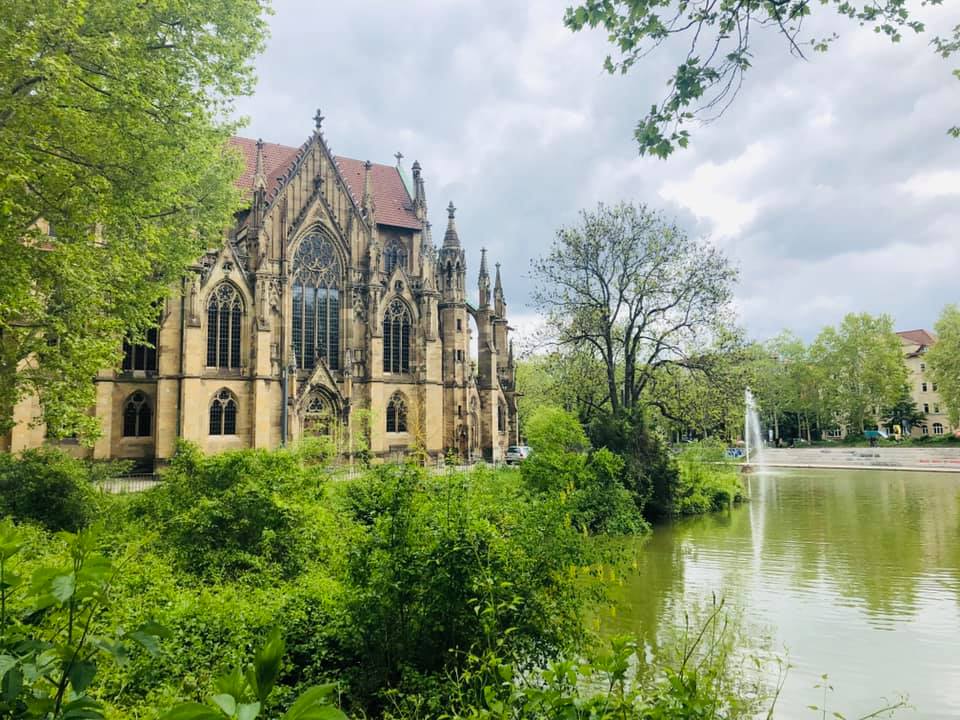Top 10 Things to Know When Moving to Germany

Updated on:
Top 10 Things to Know When Moving to Germany
Heading to Germany soon? I remember how that felt – all new and a tad overwhelming. But don’t worry, I’ve got your back! Here are 10 key things to keep in mind as you make your move. Trust me, these insights will make your German journey a little smoother. Cheers to new adventures or should I say Prost?! 🥂🇩🇪
1. Trash and Recycling
You will immediately become a recycling guru. Germany does not play around when it comes to trash and recycling.
We sort our trash into five categories: paper/cardboard, plastics/foil, compost, glass (which we drop off at specific spots where the glass is separated by color), and mixed trash for stuff that can’t be recycled. And don’t get me started on the adventure of figuring out those in-store recycling machines for specific glass and plastic bottles to get our “PFAND” deposit back!
Trash pickups can range from 1 to 3 weeks for each type of trash or recycling bin, depending on the city you live in. The containers can fill up fast during this time. Talk about taking a serious look at our habits as humans and becoming more aware of our footprint on this earth. Kudos to you, Deutschland!
2. Lazy Sundays
Sundays are truly considered a day of rest here in Germany. All malls and grocery stores are closed on Sundays. However, you can still usually find some restaurants, bakeries, and gas stations open.
As a result of slower-paced Sundays, Saturday is a big shopping day here in Baden Württemberg. Initially, it takes some getting used to. But once you plan accordingly, we have found it is almost a relief to have fewer distractions on one day of the week. It helps us focus more on getting outdoors and spending quality time together as a family.
3. Heated Towel Racks
This is a genius idea. We have a huge rack on the wall of our bathroom that serves as a heater and as a warming and drying rack for towels and it even comes in handy for drying wet laundry. Our heated rack is definitely one of my favorite household additions since moving here.
4. Rolladens
Another brilliant idea that seems common throughout Europe. It is fairly standard for most windows to have an exterior shutter that you can open and close daily. This shutter helps with insulation, keeping your home cooler in the summer and warmer in the winter.
Each morning you are encouraged to open your shutters or rolladens along with your windows so that you can air out your home. I have loved doing this and controlling the air in each room of our flat keeps our home feeling clean and refreshed.
5. Efficient Toilets
Perhaps I got lucky, but I am pretty certain we will never need a plunger for our toilet. The Germans have ensured that the button on the wall will flush your business. We have a small button for when we go #1 and a large button for our #2 business. Just press the appropriate button and voila! Despite my daughter’s generous toilet paper usage, we have not had to use a plunger since moving here. Sometimes it’s the little things in life, victory is ours. 🙂

6. WC=Restrooms
When you are in public and need to use the restroom, be on the lookout for the letters WC. Borrowed from the English, WC stands for “water closet.” I must say our WC at home has barely enough room to close the door and it has the tiniest sink I have ever seen in my life. Often, you can expect only cold water to be available to wash your hands when finished. However, it gets the job done. Mission accomplished.
7. Fresh Everything
Our fridge is very small in comparison to the one we had in our kitchen in the U.S.A. Which means saying goodbye to our beloved Costco and hello to shopping daily here. Luckily, there are a large number of local grocers to choose from. Not to mention the fresh bread, meats, and produce sold at the markets in nearby neighborhoods. The prices are cheap and fair, the quality is fresh and delicious. I was even shocked to find a vending machine in my neighborhood with fresh eggs, cider, a variety of cheeses, and honey. What’s not to love?
8. The Locals
Since moving to southwest Germany, I have had a few faux pas along the way. Mostly mishaps at the grocery store pertaining to things like not printing labels for my produce properly, forgetting my tote bags for groceries, bagging my groceries too slowly, being overly friendly and chatty, and so forth.
My initial experience suggests that Germans often value efficiency, placing importance on getting tasks done accurately and promptly, with no small talk needed.
It’s important to understand that adjusting to a new culture can take time. With patience and persistence, I’ve since experienced many warm, welcoming, and supportive individuals.
9. Restaurant Quirks
Dining out here offers a unique experience compared to the USA. Often, you’ll find the freedom to choose your own table unless a sign indicates to wait to be seated. While the pace here might be more relaxed, it gives you the chance to savor the moment. Wait staff usually await your signal – a closed menu – to take your order. They won’t hover but trust that they’re there when you need them. When ordering water, just mention if you prefer still or sparkling, and keep in mind that tap water isn’t commonly served. Enjoying ice in your drinks is not a standard here, but ice is usually available if requested.
When you’re ready to wrap up, signal for the bill and have your payment ready; the servers are efficient and ready especially when paying with cash. It’s worth noting that tipping isn’t customary as servers earn a decent wage, but it’s always appreciated for exceptional service. While these nuances might be new, trust me, they’ll soon become second nature.
10. Cash Economy
During my time here, I’ve observed a preference for cash transactions among the local stores and market vendors. Keeping a bit of both bills and coins, handy makes simple tasks such as paying for parking, accessing public restrooms, or picking up a shopping cart incredibly smooth. While the momentum for card payments is picking up, the vendors at the Farmer’s Markets I frequent still appreciate cash transactions. As you immerse yourself, you’ll find that keeping cash on hand complements the local vibe beautifully.
Bonus Tip: When you go shopping whether it is for clothes, groceries, Christmas gifts, etc. Always bring several tote bags along. Stores will provide bags but prices and sizes vary from .25 to 1€ each.
There You Go
Looking back, here are 10 things I wish I had known before making the big jump from the U.S.A. to Germany. These are just some of the surprises I bumped into early on. My best advice is to expect the unexpected and enjoy the ride. Trust me, you’ll soon feel right at home with the awesome German vibe. I have loved my time here so far and I hope you do too. Viel Glück!
What surprised you the most when you first moved to Germany?
How many of you will be moving to Germany soon?
As always, I am eager to hear your thoughts or comments. If something sparks your interest or if you have any questions, please share them below. And if this piece resonated with you, please consider supporting my site through Buy Me a Coffee. Your support enables me to craft more stories to share with you all. 💕
